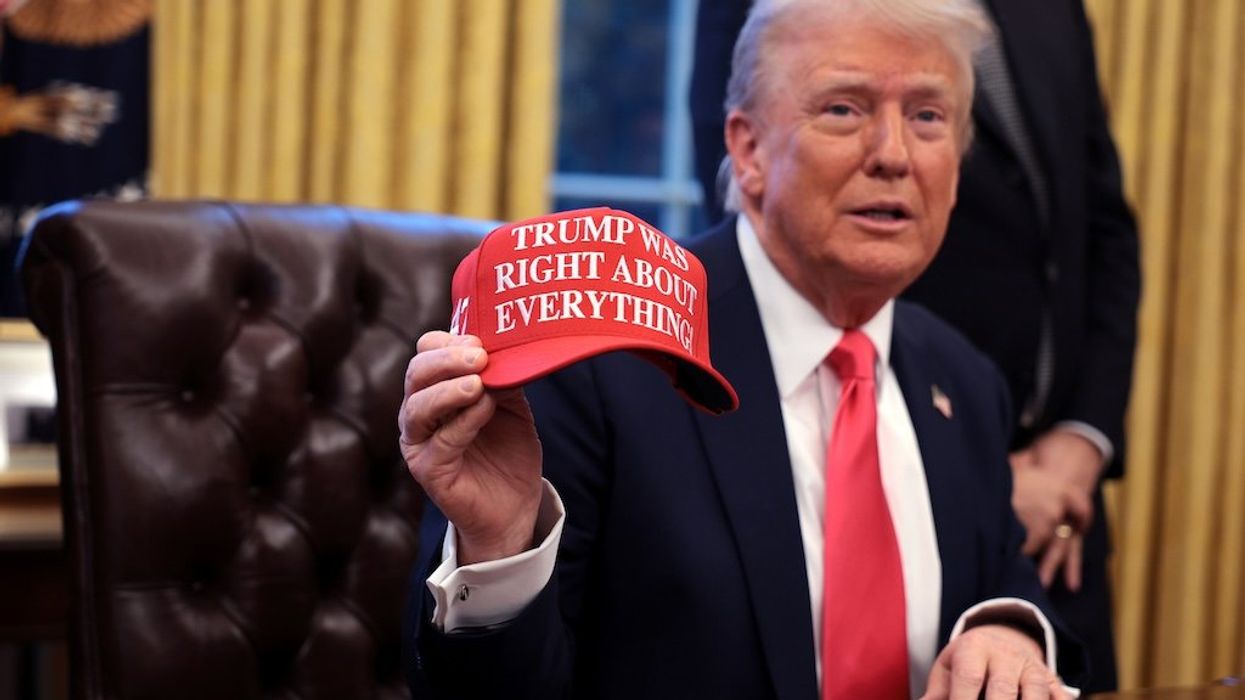The State Department asserted Tuesday that the United States is not going to help raise funds to support construction of an oil pipeline in Kenya, as widely reported.
Instead, a department press release said the government would help raise funds for “a renewable energy development” in Africa. However, the same statement said that U.S. Ambassador Robert Godec also expressed support for a project “which conceptually includes an oil pipeline component.”
This comes one day after a Wall Street Journal editorial with the headline “Keystone No, Kenya Pipeline Yes — The U.S. Says It Wants to Help Finance an Oil Pipeline in Africa” reported that the Obama administration is supporting the construction of an oil pipeline in Africa.
The State Department issued a press release challenging media reports as “inaccurate.”
 Pipe is stacked at the southern site of the Keystone XL pipeline March 22, 2012, in Cushing, Oklahoma. President Barack Obama has opposed the construction of the pipeline. (Tom Pennington/Getty Images)
Pipe is stacked at the southern site of the Keystone XL pipeline March 22, 2012, in Cushing, Oklahoma. President Barack Obama has opposed the construction of the pipeline. (Tom Pennington/Getty Images)
Godec told Kenya’s energy minister that the United States would help raise $18 billion to finance the Power Africa project in the country. “Kenya needs $18 billion worth of financing,” Godec was quoted as saying. “So one of the questions we are discussing is how we can work together with the private sector and governments to raise that sum, to find ways to make certain that this financing becomes available.”
“Recent media reports of Ambassador Godec pledging U.S. financial support for an oil pipeline in Kenya are inaccurate,” Tuesday's State Department press release said. “During his meeting with Kenyan Cabinet Secretary for Energy and Petroleum Charles Keter on Jan. 5, the ambassador said that a Power Africa analysis indicates that Kenya will need $14-18 billion to finance renewable energy power development, and not a pipeline.”
“He also expressed support for a proposal by a consortium of American companies to participate in the Lamu Port-South Sudan-Ethiopia-Transport (LAPSSET) Corridor Project, which conceptually includes an oil pipeline component,” the statement continued. “The ambassador did not say that the U.S. government would help finance the construction of an oil pipeline in Kenya.”
The industry website OilPrice.com was the first to report the story. The Journal reported Monday that “the pipeline would stretch from Kenya’s Rift Valley to Lamu on the coast.”
However, the State Department did not respond to inquiries from TheBlaze Monday about the reports.
This still marks the State Department’s explicit support for a consortium of private oil companies to build a pipeline in Kenya after rejecting the KeystoneXL pipeline from Canada into the United States over climate concerns.
TransCanada has sued the United States for $15 billion over the rejection.

 Pipe is stacked at the southern site of the Keystone XL pipeline March 22, 2012, in Cushing, Oklahoma. President Barack Obama has opposed the construction of the pipeline. (Tom Pennington/Getty Images)
Pipe is stacked at the southern site of the Keystone XL pipeline March 22, 2012, in Cushing, Oklahoma. President Barack Obama has opposed the construction of the pipeline. (Tom Pennington/Getty Images)


